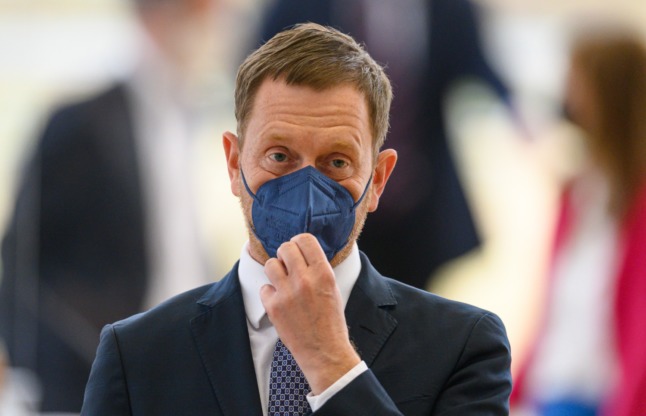Shortly before the federal-state Covid summit on Thursday, Kretschmer called for a “hard breakwater” of two or three weeks in view of the rising Covid infections and hospitalisations.
Kretschmer avoided using the word lockdown – but the proposal sounds like what has previously been called a ‘circuit-breaker’ type lockdown.
According to the Leipziger Volkszeitung, the plans for Saxony were discussed at a meeting of the CDU parliamentary party executive on Wednesday evening.
The report said Kretschmer wants to see the closure of bars and clubs, as well as a general ban on large events. Closures in the cultural and leisure sector are also being discussed. It is still unclear whether restaurants could remain open.
Details are to be decided by the cabinet on Friday, reported Tagesschau.
Kretschmer said that it was also necessary to wait for the Bundestag and the Bundesrat to pass their resolutions on the Infection Protection Act.
The Bundestag passed the law on Thursday, which is backed by the SPD, Greens and the FDP. On Friday, the Bundesrat will vote on it.
READ MORE Political row snags German bid to tame Covid surge
Saxony reported a 7-day incidence of 761.4 Covid infections per 100,000 residents on Thursday – the highest infection rate nationwide, ahead of Bavaria (609.5) and Thuringia (565.0).
“This shows once again that urgent action is needed,” Kretschmer said.
Saxony also has the lowest vaccination rate in Germany with 57.6 percent of the population fully vaccinated against Covid.
Nationwide, 67.8 percent of the German population is fully vaccinated.
Saxony’s hospital coordinator Michael Albrecht called for a 14-day lockdown to slow the Covid spread down.
“My personal recommendation would be: do a total lockdown for 14 days now,” he said. “Let us catch our breath, let us see how the development of the case numbers then weaken.”
It comes as state leaders and Chancellor Angela Merkel discuss Covid restrictions for winter.



 Please whitelist us to continue reading.
Please whitelist us to continue reading.
Member comments